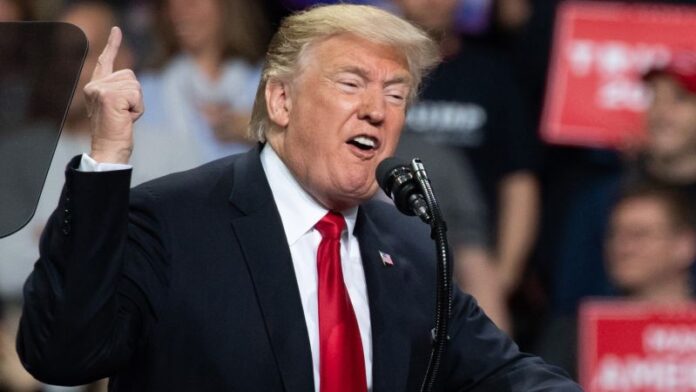Key Falsehoods or Claims:
The article discusses the promotion of a “Trump coin” which features an image of the former president. It highlights the false claim that this coin has any significant value beyond being a novelty item and a marketing ploy. The CEO is quoted as admitting that the coin is essentially a “meme” and is being purchased for the purpose of owning a piece of Trump memorabilia rather than as a serious investment.
Source and Bias:
“The New Republic” is a left-leaning publication known for its critical analysis of conservative politics. While it may have a bias against Donald Trump, the information presented in the article is based on the CEO’s own admission and is not inherently biased.
Analysis of Falsehoods’ Impact on Public Opinion and Democracy:
The promotion of the Trump coin is reflective of the enduring support for the former president among a certain segment of the population. This kind of merchandise perpetuates the cult of personality around Trump, reinforcing the false narrative that he is a successful businessman and a beloved figure. This kind of idolization of a political figure can have a polarizing effect on public opinion and poses a threat to democracy by encouraging blind loyalty rather than critical thinking.
Potential Public Reactions or Political Outcomes:
The article doesn’t specifically discuss polling data or public statements related to the Trump coin. However, it’s likely that supporters of Donald Trump would be attracted to the idea of owning such a symbolic item, further cementing their loyalty to the former president. This type of merchandise can also be used as a fundraising tool for political campaigns, potentially influencing voter behavior by capitalizing on emotional connections to Trump.
Recommended Further Reading:
To understand the impact of political merchandise and symbolism on public opinion, I recommend reading studies on the influence of political branding and imagery. Additionally, exploring reputable sources on media influence and misinformation can provide valuable insights into the ways in which falsehoods and conspiracy theories shape public attitudes.
Source link
Redirect URL
